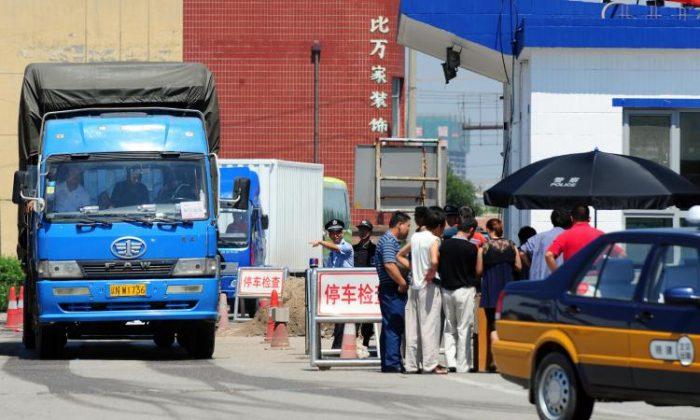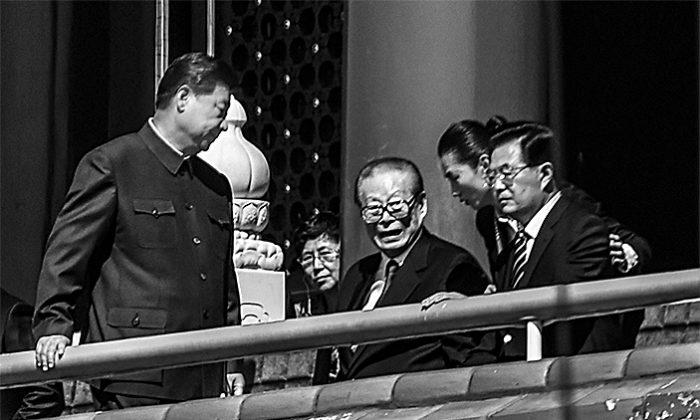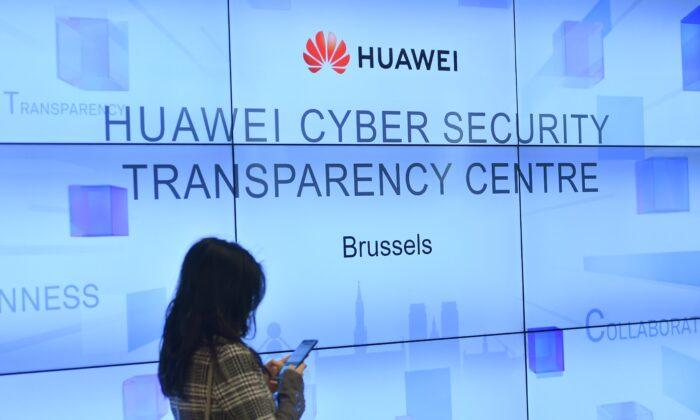After China launched its satellite positioning system Beidou, among other things it was implemented for ground transportation tracking. All large truck owners had to install a terminal that allowed tracking of the vehicle and driver hours on the road.
The receivers in the trucks are manufactured by third-party companies and are not without problems. However, it is the users who are paying for the issues in the form of heavy fines that they can’t afford.
In April, Jin Deqiang, a truck driver in Hebei, committed suicide by poisoning because a checkpoint found his truck was not connected to Beidou and he was given a hefty fine.
The failed connection to Beidou that led to Jin’s suicide could have many causes including the failure of the operating platform during the data collection, transmission, and supervision; and the driver may be unaware of the disconnect.
The second weight check showed that his truck was not overweight.
The national road freight vehicle supervision and service is a platform that collects and traces data for the road freight industry. Sinoiov, located in Beijing, exclusively undertakes the development and construction of this national logistics platform.
It was said that when the Order was promulgated, the three ministries didn’t solicit opinions from the public. This resulted in the vast industry knowing nothing about the regulations as well as the exclusive operation of the network by Sinoiov.
Sinoiov is controlled by the largest shareholder, Transinfo Group. The current second largest shareholder is Shanghai Yunxin Venture Capital (a wholly-owned subsidiary of Ant Group, an affiliate of Alibaba).
Xia Shudong is founder and chairman of Transinfo Group. The core holding companies of Transinfo Group include Sinoiov, Sinoiov Network, China Transinfo (listed in A shares, the second largest shareholder is Alibaba Group), and China Transinfo Technology Corp.
Transinfo Tech was founded in 2000, and by 2009 Xiao had already participated in a large number of state-owned enterprise equity transfers. Sinoiov, also founded by Xia, undertook large projects from the Shanghai Municipal Government and the Ministry of Transport in 2009.
Beginning in 2009, a series of policies surrounding the national vehicle grid-connection were promoted one after another. In 2012, a State Council document and a Ministry of Transport document were issued that required the construction of a national freight platform, the launch of the network by Jan. 1, 2013, and the coverage of all heavy-duty trucks and semi-trailer tractors by the platform. According to the Order No. 5, 2014, the implementation was solely designated to Sinoiov.
After Jiang Zemin became the leader of the CCP (1989–2002), interest groups formed by the CCP princelings and dignitaries controlled the country’s economic lifeline in different areas of China. It’s well known that China’s telecommunications, electricity, energy, finance, etc. are all hugely profitable fields. With high-level power to escort them, they are simply untouchable businesses. The same is true for the transportation system.
In the wave of Internet applications, logistics is referred to as a cash cow, and the market is measured in trillions. According to the industrial and commercial registration information, since 2015, Sinoiov has experienced frequent equity changes by participating individuals and private equity funds. In 2016, the financial business of Sinoiov was officially launched.
Interest in the relevant market is too large for Sinoiov to be the ultimate beneficiary of this monopoly. Whether it is also useful to high power is worth looking at.





